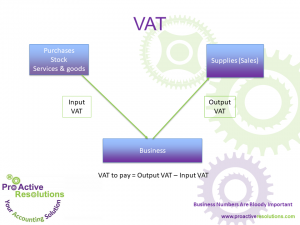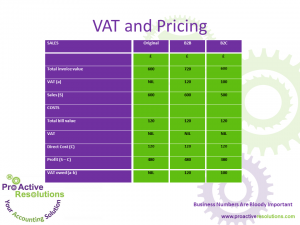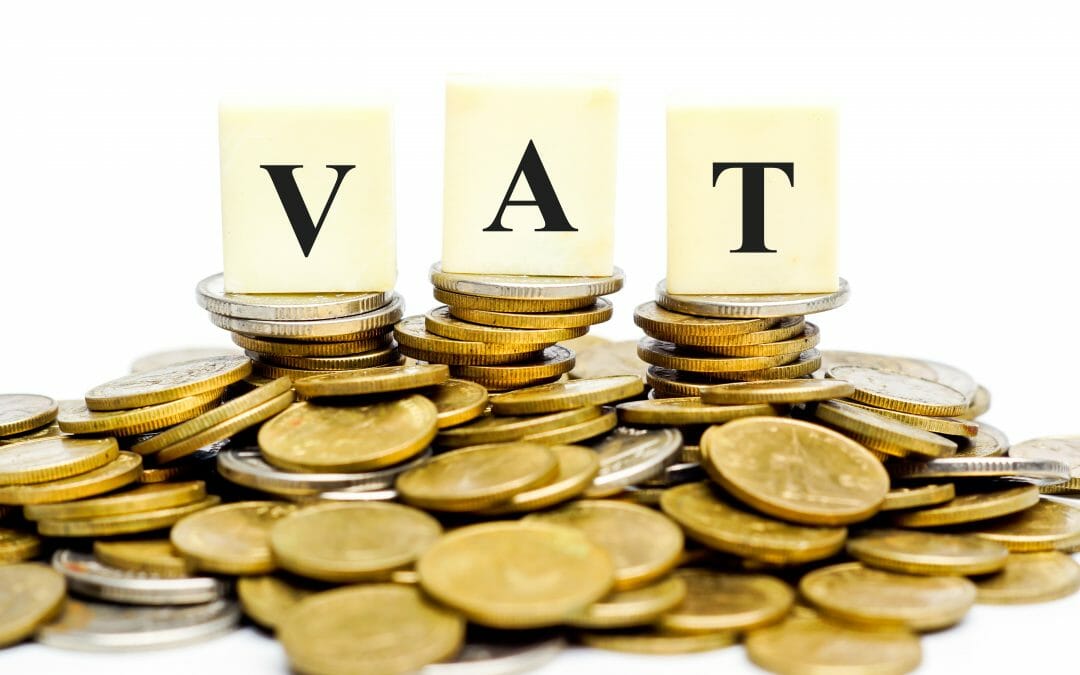VAT- What is it?
It is a tax on sales, not profit. It is a multi-stage tax, charged at each stage of the business cycle on the “value added” at that stage. Most importantly the basic principle is that it is actually paid by the non-VAT registered customer.
It
It is charged on the taxable supply of goods and services by a taxable person in the course of a business.
Taxable supply
There are three main Categories:
1. Exempt supply
Examples include Insurance, postal services & financial services
Note: If this is the trade of your business then you cannot register for it & cannot reclaim any input VAT.
2. Outside the VAT scope
Common examples include wages, dividends, taxes
Note:* There is no option to claim back if you are outside the scope
3. Taxable supply
This is further broken down into two headings
a) Zero-rated supply
Examples include baby clothing, newspapers, food and medicine.
b) Standard rated supply
Is deemed to be everything else other than that mentioned above. There is a standard rate of 20% and the reduced rate is 5%
Taxable person
A taxable person is registered for VAT or required to be registered for it
2 types of VAT registration:
Compulsory VAT
This is where your business had a VAT taxable turnover of more than £85,000 over the last 12 months; or is expected to have taxable turnover of more than £85,000 in the next 30-day period
Registration is effective from the end of the month in which notification is required.
Voluntary VAT
It may seem crazy to register by choice, when you are below the registration limit, however;
Benefits include:
Gives an impression that the business is bigger than it actually is
Able to claim input VAT
Avoids any future problems when limits exceeded.
Imposes discipline on business to keep accurate records.
Drawbacks
As a result there will be an increase admin work
The VAT added to your prices will be an extra cost for B2C sales
Responsibilities
Above all the main role of a VAT registered business is as an unpaid tax collector and administrator. So businesses add this to the prices charged to customers (output VAT), pay it on the goods and services bought from suppliers (input VAT).
VAT-registered businesses must complete and submit a VAT return to HMRC, typically every 3 months. This is because the return shows VAT charged to customers, collected, and due/refundable.
From 1 April 2019, VAT-registered businesses over the registration threshold must comply with Making Tax Digital. These rules will not change under MTD, it is how the information is sent to HMRC that will change.

Consequently the numbers business has just become VAT registered. It provides a service for which it currently charges £600, have associated direct costs of £120, no VAT is charged on these costs.

Illustration
After you’re registered there will be a change in how you do pricing, how you process to your customer, and ultimately the impact on your profits.
Consequently the change to how you do pricing will be based on whether your customers are registered for or not. For the purpose of this exercise we will classify customers who are VAT registered as Business to Business (B2B), those that are not registered will be Business to Consumer (B2C). B2C will typically sales to charities, businesses with sales below the VAT threshold, and individuals.
So if you sell B2B, adding VAT to your prices will mean that you and your customer will not lose out. Hence, any VAT you add to your prices will be what your customer will claim in their VAT return. In this example, the profit before and after registering stays the same at £480.
If you sell B2C, adding VAT to your prices will represent an actual price increase to your customer.
This illustration for B2C shows what happens when you decide not to increase your prices. Furthermore the price you charge your customer is assumed to inclusive of VAT. Hence, you absorb it, and profits suffer. Example, the profit before is £480, as a result it drops to £380 after registering.
Contact us if you want to know more about VAT & pricing. For more business and finance , news, advice and tips, don’t forget to watch our weekly broadcasts, listen to our weekly podcast I Hate Numbers.
